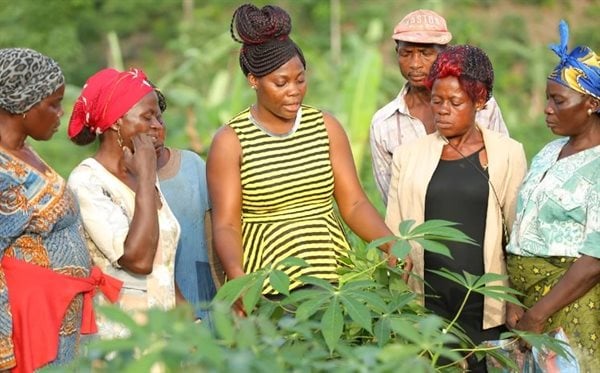
According to Nestlé, the collaboration seeks to develop and empower these farmers and SMEs to help Nestlé meet its goal of boosting its responsibly and regionally-produced raw materials used in the local production of its Maggi, Milo and Cerelac brands from 60% to 70% by 2022.
The IDH Grown Sustainably in Africa programme supports companies such as Nestlé to increase local sourcing and further incorporate local farmers and SMEs into their supply chains for African markets and beyond. Under the programme, IDH partners with retailers, brands and buyers to form broader long-term partnerships, with the aim of commercialising and improving business operations of potential SMEs and farmers in Africa who can supply these companies.
“In line with Nestlé’s Creating Shared Value approach, our new partnership with IDH will increase the capacity of farmers to produce high-quality crops that will enhance local supply and help develop local economies – this is all part of our commitment to improving 30 million livelihoods in communities directly connected to our business activities,” said Rémy Ejel, chief executive officer (CEO) of Nestlé Central and West Africa Ltd.
According to the Food and Agriculture Organisation (FAO), the agricultural sector helps to support food security and eradicate hunger in the region, contributing about 15% of total GDP. However, based on current trends, the food production system in sub-Saharan Africa will only meet 13% of its food demand by 2050.
Low productivity means agricultural output in Central and West Africa is only 56% of the world average. Poor quality and high post-harvest losses impact on raw materials production, while a lack of knowledge, inadequate infrastructure and rising youth unemployment all affect sustainable supply.
The IDH-Nestlé partnership aims to address such challenges by encouraging farmers and SMEs to efficiently produce high quality and high-yield crops using best agricultural practices, and in turn, also help to reduce their environmental impact and the need for natural resources.
Such efforts highlight the importance of this year’s Earth Day, which focuses on climate action. In 2019, Nestlé announced a new ambition to achieve zero net GHG emissions by 2050, in line with the UN climate pledge. To guide its efforts, the company identified several key actions: fight deforestation, reduce food loss and waste, work with farmers to reduce GHG emissions, develop alternative packaging solutions, and help suppliers manage soils through regenerative agriculture and tree planting.
As part of the GSA programme, the partnership aims to address challenges faced by farmers and SMEs who lack access to affordable finance, technical and management capabilities.
In line with Nestlé’s Responsible Sourcing Guidelines and IDH’s vision, the collaboration will enable farmers to become reliable suppliers for other companies beyond Nestlé, increase African trade, and create permanent employment and opportunities for youths and women across the region.
The IDH-Nestlé partnership will be delivered in three stages. The set-up phase will define the project structure, before analysis is carried out to assess and identify farmers and SMEs, in line with Nestlé’s business model. Next, the technical team will hold regular meetings with each farmer and SME and provide them with long-term support to build on their local sourcing capacities. When SMEs graduate and start providing reliable quality supply, IDH’s Farmfit Fund will help provide them with affordable working capital to scale up their businesses.
“This partnership pairs IDH’s technical expertise in agriculture value chain development and innovative financing through the €500m IDH Farmfit Fund, with commitments from Nestlé’s supply chain. It will help to transform farmers and SMEs into long-term, sustainable operators and have a massive impact on building up the African economy, creating jobs and increasing food security,” said Joost Oorthuizen, executive director for IDH Sustainable Trade Initiative.